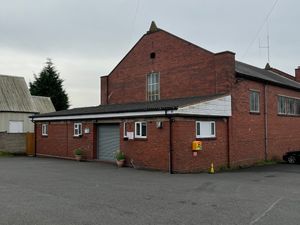Hundreds of children in Sandwell still being taught at home amid Covid-19
Hundreds of Sandwell schoolchildren are still being taught at home by their parents since the start of the coronavirus pandemic.

Members of Sandwell council’s children’s services and education scrutiny board were told last week that 487 youngsters were having elective home education, or home schooling, with parents still anxious about them mixing in large groups.
This compares to 575 children being home educated during the height of the pandemic in January this year.
But in Walsall, only 350 children have undertaken elective home education this academic year, according to members of Walsall Council’s education overview and scrutiny committee.
Sue Moore, Group Head Education Support Services at Sandwell Council, said: “We’re getting some return of children coming back into school, but it’s not in the same level.
“I would have been optimistic before if we had higher returns, but we’re not seeing that at the moment. I don’t think we are going to go back to that pre-pandemic level.
“Time will tell. Since this weekend (November 27) with the additional measures due to the Omicron variant, if any parent was thinking about returning that might make them push that decision back for a few more months.
“There is no jurisdiction for us as a council to what goes on in a family home. If a parent chooses not to engage with us a local authority, we have no say. It’s only when we feel there is a safeguarding issue then we can actually visit the home.”
The Local Democracy Reporting Service queried the data used in the reports presented at the board meeting, as the data was recorded up to January 2021.
The most recent data recorded for children being home educated in Sandwell is dated to the end of the first half-term of this current academic year, or October 2021.
An England-wide survey of 151 councils by the Association of Directors of Children’s Services found the number of home-schooled children in England has risen by 38 per cent year-on-year, from 54,656 in October 2019 to 75,668 in October 2020, with coronavirus as the most cited reason.
But in Sandwell council’s own report, titled “CSE Scrutiny EHE Summ of Evidence Appendix 1”, noted their increase in children being home-schooled is higher than the 38 per cent national average.
According to the report, in October 2020, the council had received 220 referrals, including 90 citing coronavirus as the primary reason – an increase of 49 per cent in comparison with the previous academic year.
It also noted that the number of children being educated at home in Sandwell is an “upward trend and rising”.
The report states: “This had started in 2019 way before school closures, it is possible that the impact of Covid (school closure, remote learning and fear of sending children to school) has had an impact on rising numbers electing to home educate.
“Monitoring data is ongoing and the extension of timelines for the working group will potentially give a more balanced view, as some children will return to school education.”
Reasons for children being home schooled aside from coronavirus include dissatisfaction with what local school can offer children, lifestyle choice, and “particular talent”, according to the report.
It comes after Sandwell council’s children’s services and education scrutiny board have agreed to write to the Secretary of State for Education, Nadhim Zahawi, to strengthen legislation and safeguards for home schooled children.
Currently, there is no national register for children who are home educated.
The current estimated cost of EHE support in Sandwell is £130,200.
Local authorities across the country are worried without a register or a means of seeing the child in their learning environment, they cannot be satisfied children or young people are educated in a safe or appropriate environment.
Similarly, while some parents will be using part-time education and extra-curricular settings to complement their home education, some children may have home education in unsuitable settings, such as unregistered and illegal tuition centres.
Michael Jarrett, director of children’s services for Sandwell council, said: “I’m really pleased to hear that here in Sandwell we have a lot safeguards in place to ensure children’s needs are being met.
“But one thing we are absolutely keen on is a national register. It’s been a concern to have children under the radar and not seen by professionals, experts, and teaching staff.
“It’s positive we are moving in the right direction to have a national register.”




